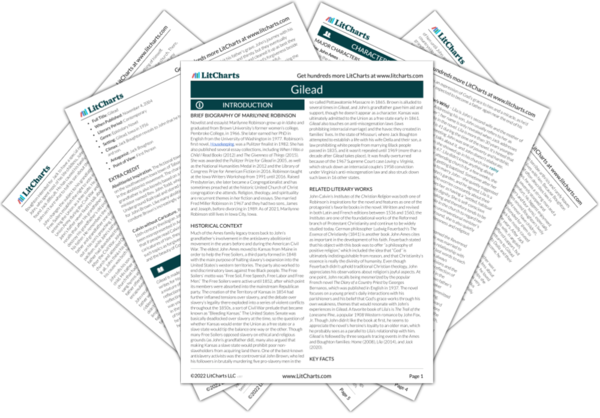Karl Barth was a Swiss Protestant theologian whose life would have been roughly contemporary with John’s, and in fact Barth was at the peak of his public influence as a theologian around this time (the 1950s). It’s clear, though, that by making this suggestion, John is just trying to put an end to the conversation. Again, Lila sees a deeper significance in the conversation and hints that she’s experienced radical change herself. This suggests that although she’s not educated like John, her perceptiveness is much greater in some ways.
